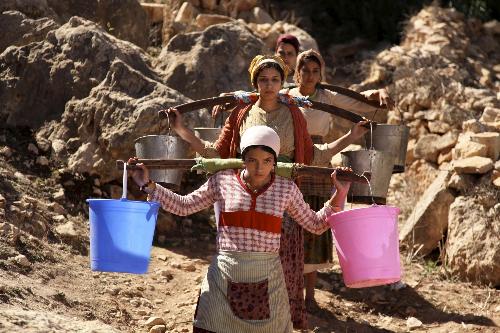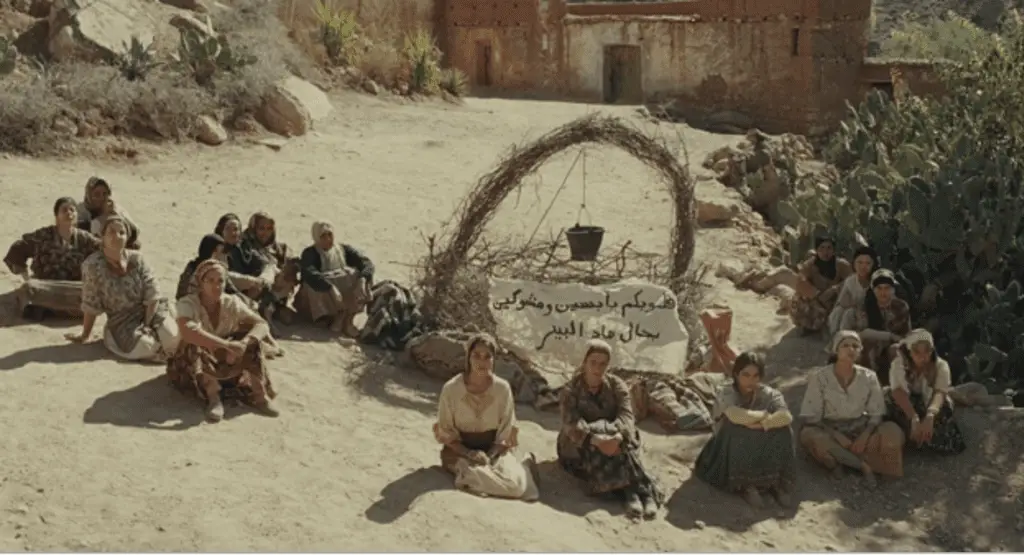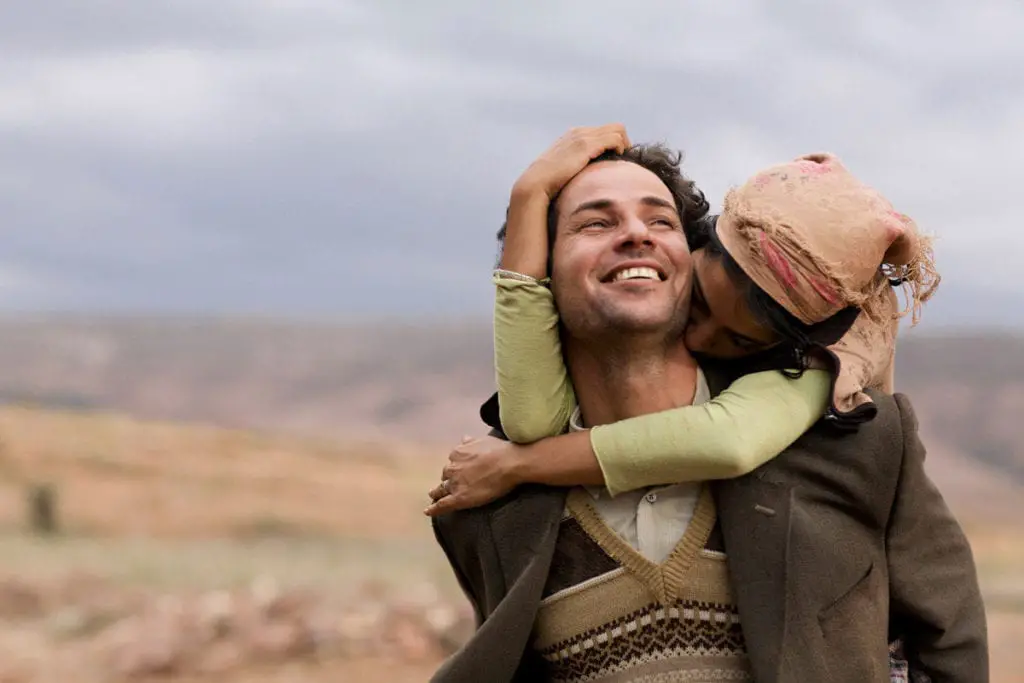A common criticism of feminism is that, as it exists today, it tends to forget the most vulnerable of women, i.e., those that are not wealthy, white, cisgendered, able-bodied, neurotypical, or straight. The response to this has been to draw increasing attention to the principle of intersectionality, that is how one oppression interacts with and complicates others (if you are non-white, neurodivergent, and also LGBTQ+, for example). Similarly, intersectionality seeks to investigate how privilege might interact with oppression (if you are a woman but also white, or if you are a POC but also rich, etc).
Despite the fact that intersectionality has become a common tools of analysis in the social sciences, cultural productions haven’t kept up. Sure, we talk more and more about oppressed demographics, but typically one at the time. We don’t want to strain a muscle, I guess.
And it’s true that even if lately we’ve saw an increase in feminist productions, they tend to primarily cater to one, maybe two demographics (when they actually manage to be feminist at all and not just an exercise in faux-feminism, but that’s another problem). And those demographics aren’t always intersectional.
That maybe why The Source, a feminist movie focused on poor Arab women in a country who suffered colonization, strikes me as special in today’s cultural landscape.
The Source or The Women’s Source
The Source is a 2011 French movie (original title La Source des Femmes literally The Women’s Source) that presented at the Cannes Film Festival the same year. Radu Mihaileanu wrote and directed it, taking inspiration from the classical play Lysistrata and from an actual women’s revolt in Turkey.
The story follows a community of women in a tiny village, nowadays in an unnamed muslim country that used to be a colony. In this village, it is the tradition that women bring the water to their family. The source is, and has always been, at the top of a mountain.

One day, one woman falls while coming down and miscarries. For Leila, who has herself miscarried under such conditions, it is too much. She organizes a strike to persuade the men to do something to bring the water directly to the village. This strike is of a special kind, though; it is a love strike. With time the strike unleashes a debate way larger than the access to water, namely, on the condition of women vis-a-vis traditions.
The movie is supposed to be a dramatic-comedy, and you will laugh yes, but way less than you might have anticipated. And, if you plan a light evening of good fun, I recommend you postpone watching this movie.
So before we move on to the themes, it’s worth summarizing the main characters:
- Leila– clearly the main protagonist, she didn’t grow in the village but came to live there when she married. She is not completely accepted there.
- Vieux Fusils– (literally Old Riffle), among the elders of the village, she supports Leila in her idea immediately. Married when she was a child to a violent man, now that she is a widow recognized for her wisdom.
- Loubna/Esmeralda– teenage sister-in-law of Leila. Madly in love with a boy from another village and has decided to marry only for love. Fan of a telenovelas and therefore nicknamed Esmeralda by the other women.
- Rachida– Leila’s mother-in-law. Hostile to Leila and her strike.
- Sami– Leila’s husband and teacher at the local school. In favor of the strike, but maybe more in favor of a peaceful village.
There are of course a lot of other characters, in favor of or against the strike, but these are the most important to the story.
A Feminine Feminist Revolution
The way Leila and the other women decide to lead their ‘revolution’ might at first appear artificial and even a tad insulting. Is a woman’s only influence on the world through her sexuality? But the fact is that this women don’t have the choice. To have water in the village the government must pay for important construction works, and for this to happen you have to face the AdministrationTM. And the administration has a directive to do nothing if not absolutely necessary, which typically means having time, connections, money, and education.
No woman in this village has all of that. Not even the entire group of women can gather all of those things. To tell the truth, the men don’t have them either. Their lot is better than that of women, but in front of a disinterested government they are as powerless as the women are. To gain what they want, the entire village must work together.
The women don’t want to penalize the village. The want the men to realize that they are suffering for nothing, and that if they love and value them they should help them do something about the condition of the water supply.

They do not reject femininity for the sake of it. But they reject thousand-year-old traditions that are outdated or were wrong to begin with. For example, going up the mountain to carry back water when running water could be installed. But as I previously said, the debate about water brings other questions, like that of the relation between men and women. The husbands think it is their right to sleep with their wife, so due to the strike, eventually practices such as marital rape and child marriage are also denounced.
There is something that grabbed my attention about The Source. In Lysistrata, one of the inspirations behind the movie, the title character (whose name literally means ‘Army Disbander’) wants to stop a war by not sleeping with men and making the other women do the same.

And there is this conversation in The Source:
Hussein (Leila’s father-in-law): Don’t belittle men. My grand-father and my father waged war on the colons and on our neighbors. In order to defend our tribe, our village, our family, and to defend our source of water. During those times women and children stayed at home, sheltered. A lot of us died. Men hunted (…). You realized it was never easy
Leila: They were all warriors.
Hussein: Valiant warriors of great courage (…). We never asked you to do our work in our place. It is for your protection and it is the tradition. The cycle of life. (…) But with the drought there is no more work.
Leila: And no more war.
The Source talks about changes in the society. How the men fell out of employment and how, if they could, they would follow the traditional role they were assigned but they can’t. And the answer given is that maybe it is for the best. Maybe we are best without the violence that exist in the traditional roles of men.
When men have it bad women have it worse
Now on to other subjects tackled by the movie that fit into the idea of intersectionality. Women suffer in this village because they are women, but also because the majority of the village suffers too. If girls barely go to school, boys don’t have a possibility to achieve their dreams either. Women don’t have it bad, per se, they have it worse.
The village is isolated. The climate has changed and agriculture has became impossible. The people in the village as a whole are stuck in there, without a chance to access a better life. The women in the village are stuck in homes they didn’t choose without a chance to access a better life. Worse, the little they have—food, respect, a roof above their head, their children—can be taken from them at any moment if they step out of line
And they are people who don’t want things to change. Some men abuse their wives at their will and use the bad situation to do virtually nothing with their lives. The government doesn’t want change either. It is shown as corrupt and not in any hurry to do anything to better the lives of its citizens. That’s why it doesn’t want to help this village. Because if it does listen to the demand of the women, the most fragile demographic of their country, they might have to listen to other oppressed voices.
A parenthesis on western ‘humanitarian’ tourists
The Source is nearly free of western, white characters. The only ones in it are humanitarian tourists, and oh boy is it glorious! If you are not aware there is currently a backlash against a certain type of humanitarian work. The one that is way more performative than effective and reeks of neo-colonialism. When rich young people pay to have ‘humanitarian’ trips and do to work they are untrained for (but I guess are naturally experts at through the sheer power of whiteness), in order to discover the Real Meaning of LifeTM and add a line to their CV. Just a new rebranding of the good old White Savior.
Well our westerners are those humanitarians. Well I guess they are not that bad because they bring money and don’t receive or offer life lessons. But seeing clueless Europeans watching a show made for them (to show gratitude) while the tensions of the village unfold in front of them is so nice. They can’t understand it, since they don’t speak Arabic, but long story short, The Source makes a point explaining that you can’t be the hero of people you don’t understand.
Of Hope and Love
Gloriously, the movie never becomes nihilistic. Sure, there is despair in our world. There is apathy, oppression, violence, and people who will stand for it. But it doesn’t mean that all hope in mankind must be forsaken. There is love in this world, and love conquers all.
That’s what Loubna’s story represents. Everything is possible when you believe in love, even when the object of your love is proven to be disappointing. Because as long as you believe in the idea of love you can muster the courage to move forward, and maybe find someone more worthy of your love. Like Leila did.
To truly love and be loved you must be worthy of this love, and eventually both Sami and Leila are.

It is also important to love your neighbor, as Vieux Fussil does. She might not have children of her own but she takes care of every young women in the village because they need love and support. Because to turn into the best version of yourself, you need love. Love is like water, it brings life.
And that’s what the women ultimately bring to the village: Love and Life.
Conclusion
The Source isn’t a perfect movie; it has its flaws. It is probably a bit too theatrical, but it is inspired by a play after all. It’s a bit Manichean too, though while not stigmatizing Islam. (The fact that the imam refuses to move against the women because he has been convinced by them is touching.) But it is important to remember that the movie is a fable. It was never intended to be a realistic social movie.
It’s a tale about women and their emancipation. It’s a tale about change and its benefits, and it’s a tale about love. It’s different, and in the end, it’s enjoyable to watch. So I would say that The Source did its job fairly well.

